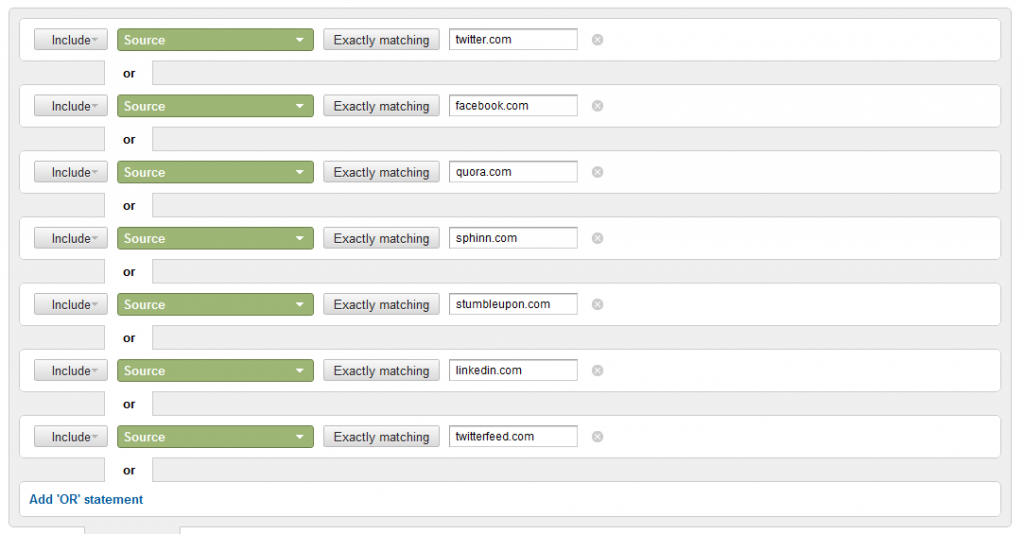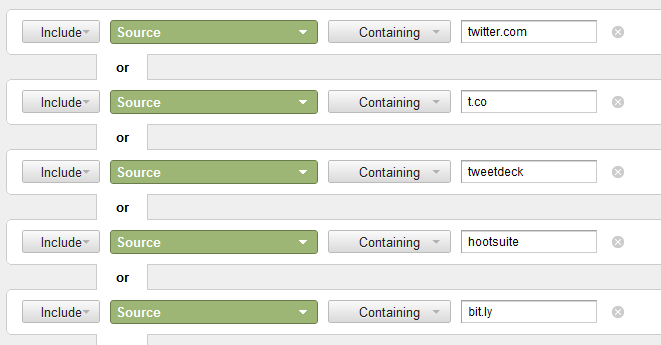Posted by dohertyjf
I love using Advanced Segments in Google Analytics. Sure, you can export a big chunk of data to Excel and then use some Excel wizardry to clean up the data and display it in different ways, but what if you just need to get a quick snapshot of certain traffic or trends, but the default segments don’t go far enough? I’ve put together a few of my favorite Google Analytics Advanced Segments for you, so that you can add them to your own Analytics and use them as you need.
Segment 1: 1 word keywords
This first segment will just give you all of the one-word keywords that are driving traffic to your site. Sometimes there are crap keywords, but I am increasingly finding it interesting how sites can rank for one-word keywords because of personalized results.
^\s*[^\s]+(\s+[^\s]+){0}\s*$
Segment 2: 2-3 words
^\s*[^\s]+(\s+[^\s]+){1,2}\s*$
Segment 3: 4+ words
^\s*[^\s]+(\s+[^\s]+){3,}\s*$
Segment 4: Social Media Traffic
Sometimes you need to see the easy breakdown of your referral sources, and even more often it can be helpful to see just your Social Media traffic. Here is how we have our Social Media Advanced Segment set up in the Distilled Analytics account:
Segment 5: Traffic to Blog (where URL is http://www.site.com/blog)
If you have a separate blog where you write and try to generate both links and traffic, it can be helpful to have a way to easily segment out the traffic to just this section of your site. Sure, you could just use the Filter section, but why do this when you can set up an Advanced Segment and have it forever? A little more work in the short term can save some big headaches. Note: this is really only helpful if your blog articles have the URL structure of http://www.site.com/blog/(post-url) Here is how I have set up an Advanced Segment to do just this:
Segment 6: Google as Source
Since SEOs often care mostly about Google traffic (for better or for worse), since it is where the bulk of our traffic comes from in almost every case, I also have an Advanced Segment set up to show me the traffic where Google is my source. Here you go:
Segment 7: Twitter Traffic
Here is the Advanced Segment I use. Have I missed any?
How to set up Advanced Segments for any section of your site.
Here is how I set up an Advanced Segment for my SEO category:
Finishing Up
These are the most useful Google Analytics Advanced Segments that I have in my arsenal that can apply over almost any client. Others have written about more specific Advanced Segments in these posts:
I suggest you read those as well. Please add in your favorites (especially ones involving RegEx) in the comments!









